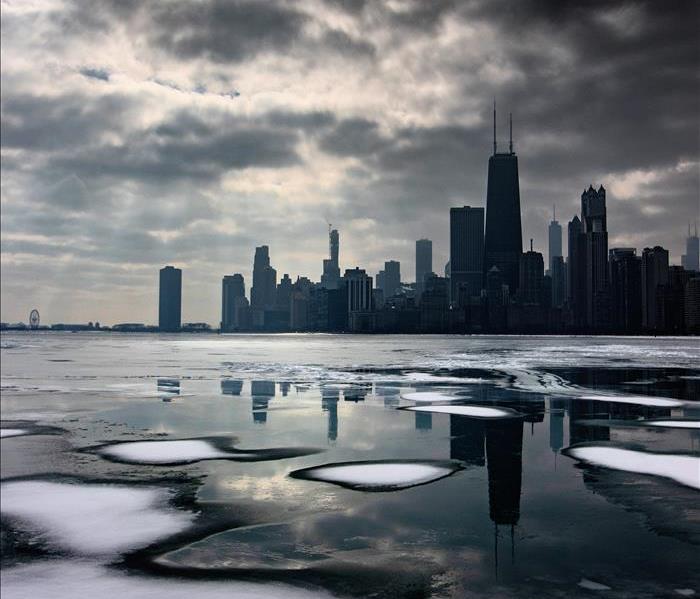Is Your Commercial Building Prepared for Winter?
12/1/2021 (Permalink)
Winter is near! Is your commercial building ready for the weather?
In Chicago, we experience harsh winters that can cause significant damage to our property. Damage can include frozen pipes, roof damage, ice damming, and flooding. Here are some tips to prepare your commercial building for rigid weather conditions.
Check your HVAC system.
Your HVAC system works hard all year, but in the winter it has to work even harder. Because the HVAC system has an impact on the air quality throughout the building, it's vital to get it serviced and inspected before winter arrives. Here's what I suggest:
- Air filters should be checked and replaced on a regular basis
- Examine and fix any broken components.
- Check for leaks or holes in the vent work that could reduce efficiency.
- Cover any outdoor air-conditioning units that will be left unattended during the winter.
- Check the ventilation system to see if exhaust gases are being vented out of the structure.
Inspect the insulation.
Inspect your building's insulation for holes or compromised places that could cause heat loss to maintain efficiency. Roofs, weather stripping, and unheated regions such as attics should all be given extra care. It is commonly stated that a poorly insulated attic might lose up to 25% of heat in the fall and winter.
Prepare your plumbing.
The average claim for frozen pipe water damage is currently at $10,800. Fixing frozen pipes is not only inconvenient and costly, but it also causes unwanted downtime for a business. Keep the building's internal thermostat set to at least 55 degrees Fahrenheit at all times to prevent freezing.
Check your roofing.
Inspect the roof for holes or damage that could cause leaks during snowmelt to avoid leaks and other costly issues. To ensure the roof is physically strong and capable of withstanding another winter, check for loose shingles and repair damage to existing seals and flashing.
Have a plan in place in case of a disaster.
What will your company do if the worst happens? Prepare for a wide range of disasters, such as fire, flooding, and gas leaks. Keep all new and existing employees and tenants informed about the protocols, and make sure they have a copy of the various evacuation plans.





 24/7 Emergency Service
24/7 Emergency Service
